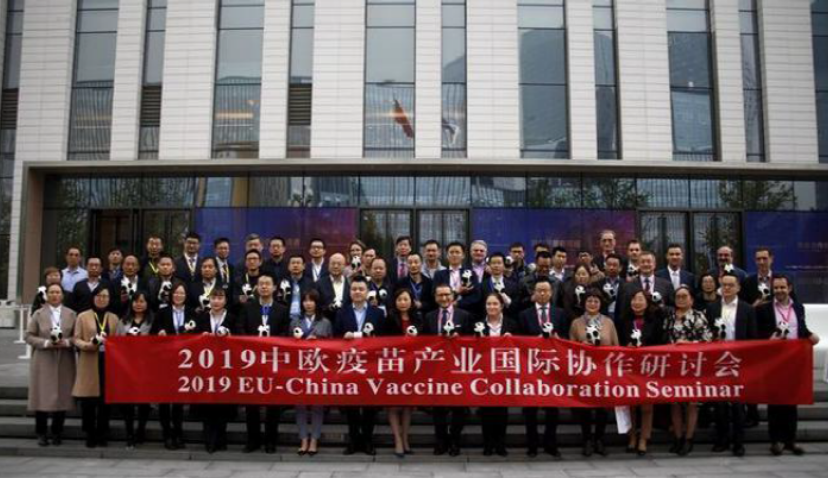The China-Europe Vaccine Industry Cooperation Seminar was held at the China-Europe Center in Chengdu from November 9 to 10, 2019. The event was organized by the European Vaccine Initiative (EVI) and the EU Project Innovation Center (EUPIC), with Chengdu Kanghua Biological Products Co., Ltd. as a co-organizer.

With the theme "New Opportunities for International Cooperation in the New Situation," the seminar focused on the current status and development needs of the Chinese vaccine industry. Chinese and foreign guests engaged in comprehensive discussions on vaccine industry development trends, research hotspots, innovative process technologies, international standards in the vaccine industry, and new types of vaccines. The goal was to provide constructive solutions for the collaborative development of institutions and enterprises related to the vaccine industry in both China and abroad.
During the session on "New Opportunities for International Cooperation," Dr. Stefan Jungbluth, Business Development Director of the European Vaccine Initiative (EVI), and Nicolas Havelange, Product Director of EVI, presented international projects such as the "Introduction to International Projects" and the "Coalition for Epidemic Preparedness Innovations" (CEPI).
In the "International Benchmarking" session, Dr. Tang Yi, Project Officer at the WHO China Office, and Dr. Hilde Depraetere, Acting Executive Director of the European Vaccine Initiative, delivered keynote speeches on topics including "WHO Prequalification" and "EU Good Manufacturing Practice." Yang Lingjiang, International Business and Cooperation Manager at Chengdu Institute of Biological Products, shared insights on the successful WHO prequalification of the Japanese encephalitis live vaccine by the Chengdu Institute.
Yang Lingjiang noted that WHO prequalification is essentially a qualification review for entering the international community in the vaccine industry. This qualification allows participation in international competition. China has significant production capacity in the vaccine industry and can contribute greatly to global health, but it must engage in international benchmarking to join the international supply chain. Meeting these standards is essential to becoming part of the global vaccine supply ecosystem.
Dr. Hilde Depraetere emphasized that vaccine development is a global issue. The rapid development of vaccine investment in China provides new perspectives and technologies for the European Vaccine Initiative. She pointed out that the latest trends in vaccine development in the EU include not only preventive research but also therapeutic research, such as treatments for diseases like cancer.
The China-Europe Vaccine Industry Cooperation Platform, jointly established by the European Vaccine Initiative (EVI) and the EU Project Innovation Center (EUPIC), aims to support global vaccine research and development effectively, address the challenges of poverty and emerging infectious diseases, and promote long-term development in areas such as vaccine technology cooperation, technology transfer, intellectual property protection, project incubation, investment, and talent training. This platform strives to contribute to the sustainable and healthy development of the global vaccine industry.





